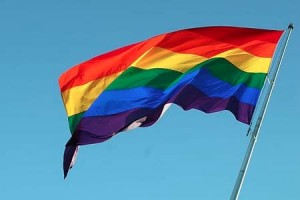 The UN High Commissioner for Refugees (UNHCR) has issued new comprehensive guidelines on asylum claims brought by lesbian, gay, bisexual or transgender (LGBT) persons, with the understanding that persons persecuted for their sexual orientation and gender identity must be granted asylum in refugee status determinations.
The UN High Commissioner for Refugees (UNHCR) has issued new comprehensive guidelines on asylum claims brought by lesbian, gay, bisexual or transgender (LGBT) persons, with the understanding that persons persecuted for their sexual orientation and gender identity must be granted asylum in refugee status determinations.
Despite continuing disagreement within the United Nations over recognizing “sexual orientation and gender identity” as categories in international law, the UN High Commissioner for Refugees (UNHCR) has included persons who are persecuted because of their sexual orientation and gender identity among those who qualify for refugee status since 2002.
The development is a controversial one. The definition of refugee in the 1951 Status of Refugees, one of the earliest UN treaties, excludes persons displaced by armed conflict or other disasters. Attempts to expand the definition, which only covers peresecution because of race, religion, nationality, membership of a social group, and political opinion, have stalled and failed.
Under the 1951 Convention persons who qualify as refugees may not be repatriated to the country they are fleeing. The UNHCR is tasked with supervising the application of the convention. Border control regimes of UN member states must comply with this obligation.
The guidelines are premised on the decisions of progressive national border control agencies and courts that hold sexual orientation and gender identity as “fundamental aspects of human identity that are either innate or immutable,” and “so fundamental to human dignity that a person should not be compelled to forsake them.” It details the best practices for refugee status determination procedures for LGBT persons, calling for a “supportive environment throughout” and “use of vocabulary that is non-offensive and shows positive disposition towards diversity.”
UNHCR defines the terms as “broad categories which create space for self-identification.” The agency cautions against inflexibly applying labels like lesbian, gay, bisexual, transsexual, intersex, queer, to name a few.
The UNHCR cites the Yogyakarta Principles, a controversial document created by LGBT rights activists in 2007 to claim a broad range of rights for LGBT persons in international law, to justify both granting asylum on these grounds and its definition of LGBT categories.
Though the guidelines recognize the non-binding nature of the Yogyakarta Principles, UNHCR asserts that the principles “reflect well-established principles in international law.”
This use of the Yogyakarta Principles by the UNHCR follows the professed intention of the creators of the document, some of them holding prominent positions within the UN apparatus, to disseminate the claims into non-binding recommendations and opinions of UN agencies and the UN human rights framework, in order to secure a normative foothold for LGBT rights within the UN system.
That the mere repetition of these claims could have the effect of securing universal acceptance of special new rights for LGBT persons or even creating new customary international law is disputed by international law experts. Piero Tozzi, Senior Legal Counsel with the Alliance Defending Freedom, denied any such effects when the principles were first published saying that international law “is not an empty vessel into which currently politically correct content can be poured into and labeled ‘customary.’”



